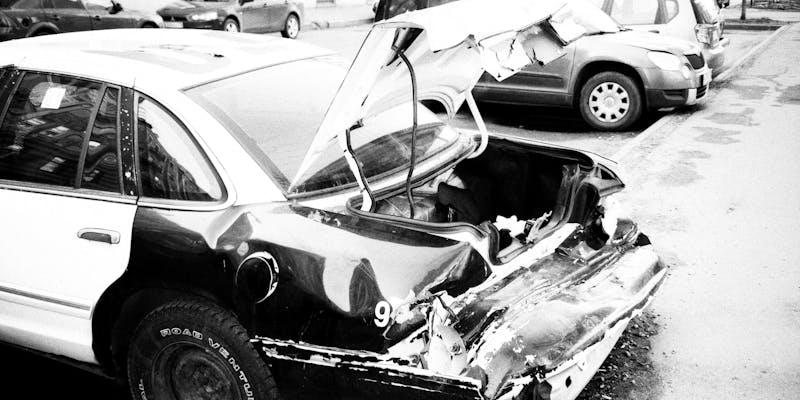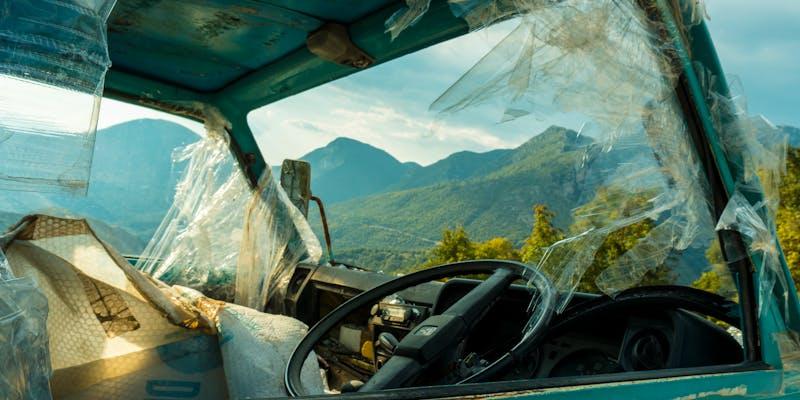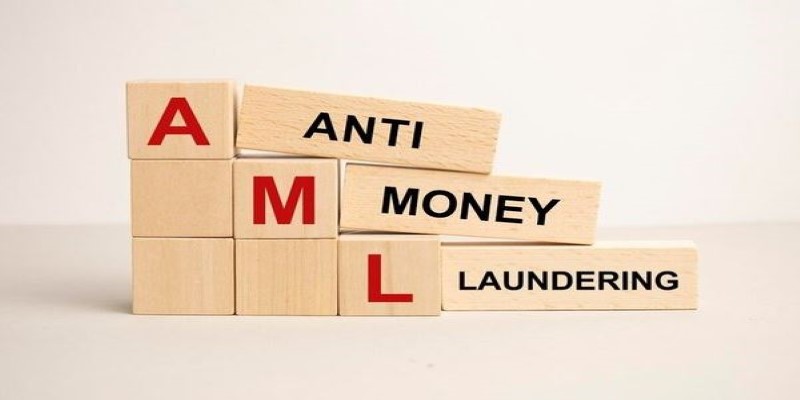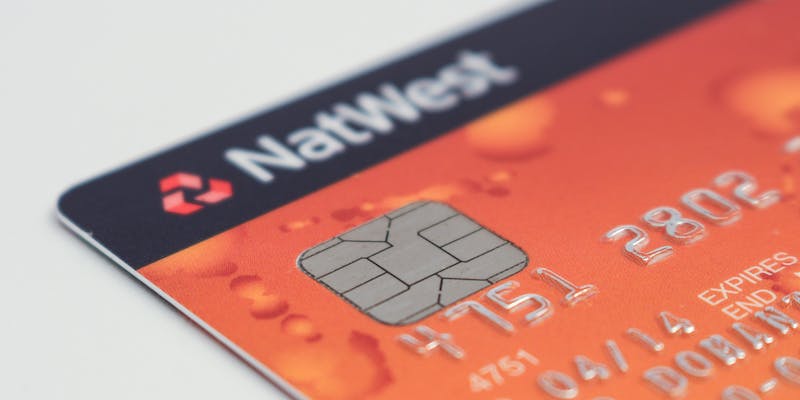What is Collision Insurance? Everything You Should Know About It
May 18, 2024 By Triston Martin
Auto collision insurance is often added to a normal motor policy to protect drivers from collision damage. Collision car fire insurance compensates for damage from a collision. Collision coverage is crucial if you want to safeguard your vehicle from the financial burden of physical damage. Remember, an accident can happen easily. Someone is always to blame when an accident occurs, and that someone might be you.
Coverage of Collision Insurance

Generally, network insurance collision experts help you cover the damage when your car "collides" with another with this insurance. This includes collision damage from the following:
- A moving or parked vehicle
- Telephone poles
- Guardrails
- Fences and signs
- Trees and shrubs
- Houses and buildings
What isn't covered by collision insurance?
Collision insurance covers vehicle damage regardless of fault, but it's unreliable. Collision insurance does not cover:
- Other driver's car damage.
- Damage from pedestrian or animal accidents.
- Natural calamity, weather, fire, or theft damage.
- Bodily harm bills for car accident victims.
Moreover, there are alternative insurance solutions for the above conditions. You must distinguish and weigh the pros and cons of collision insurance vs. uninsured motorists. If you cause an accident, liability insurance covers physical damage and personal injuries. Comprehensive insurance covers natural calamities, weather damage, and theft.
Facts About Collision Insurance
Collusion insurance is a must-have policy component to shield your vehicle from monetary smash in the event of an accident. You can compare collision insurance vs. uninsured motorists for better information on collision insurance. Moreover, here are some key points:
Consistent with Liability and Comprehensive Coverage
In most cases, collision insurance cannot be bought separately. A comprehensive vehicle insurance policy is normally blanketed with legal responsibility and comprehensive coverage. You need liability coverage if you propose an accident and cause damage to others' automobiles or property. Comprehensive coverage protects you from damage that does not result from accidents, robbery, vandalism, or herbal catastrophes.
Fixes Debris Caused by Car Crash
Accidents involving your vehicle are the primary source of coverage for collision insurance, as the name implies. No matter the accident's severity, collision car fire insurance will help with the repair fees for your car. This applies to both minor car parking zone scrapes and major avenue accidents.
Coverage for Potholes
Collision insurance often does not pay for repairs after a collision with a pothole, but car fire insurance does cover repairs after a collision with different objects or automobiles. Conversely, you may get pothole damage insurance as additional coverage with a few coverage corporations. This extra covering might be invaluable when roads are in bad shape, and potholes are widespread.
Cost Considerations
Collision insurance covers damages to your car regardless of fault, which might make it rather pricey compared to liability coverage alone. Collision insurance might be expensive, but there are methods to keep costs down with the help of network insurance collision experts. A $500 deductible or greater is one option to reconsider. You can reduce out-of-pocket scientific charges by choosing a higher deductible to decrease monthly top-rate payments.
Comparison of Comprehensive and Collision Policies

Collision and comprehensive coverage differ mostly in what the driver controls. The comparison is important, as with collision insurance vs. uninsured motorists. Collision insurance covers driver error and vehicle collisions. Comprehensive coverage covers "acts of God or nature" or occurrences you can't control while driving. Examples are a deer, a hailstorm, or a carjacking.
Let's compare collisions and comprehensiveness after a major storm. Consider two hypothetical events in that storm: A huge telephone pole collapsed on your truck, or you swerved to avoid a falling tree and hit a railing. First, you couldn't influence when or why a tree hit your automobile. Comprehensive insurance covers this type of accident. In the second case, you drove into the guardrail. As a collision, collision insurance covers the damages.
Cost of Collision Car Insurance
The Insurance Information Institute reports a $290 annual collision insurance cost. Your rate depends on your driving history and car type. Those with clean driving records tend to have lower rates than those with several accidents or other high-risk factors. If your car is expensive to fix, you may pay more than someone with an older, cheaper car.
Remember to include the deductible in your charges. The average collision coverage deductible is $250 to $1,000, with lesser deductibles ensuing in better premiums. Choose a deductible car fire insurance you may come up with the money for in case your car is damaged. Shop around for coverage to understand how your circumstances will affect your premiums. This might help you avoid pricey insurance and choose the best one for your budget and coverage needs.
Who Needs Collision Insurance?
Collision coverage is optional, but network insurance collision experts may be needed in specific cases. This is usually true if you finance or lease your car. Because car lenders incur a risk every time they lend, if your vehicle is in an accident, collision coverage protects your investment.
The benefits go beyond lenders. You may have to pay for repairs and car loans in an accident without collision coverage. Collision insurance helps prevent that pricey situation. If you want, you can drop collision coverage after paying off your car.
In some cases, collision coverage is advisable, even if it's not required. For instance, knowing that you couldn't afford accident repairs but could afford car fire insurance premiums can be helpful. This coverage can also pay accident-related expenditures over your policy deductible if your automobile is expensive to repair.
Final Verdict
The value of collision car fire insurance depends on your situation, like other auto insurance. Certain drivers must buy a policy, such as those who rent or lease their vehicles. If so, a collision policy may be worth it. You can get coverage for more than financing. Liability coverage will pay for damage to other vehicles if you cause an accident but not for auto repairs. Collision coverage applies. You should get a policy if your car is new or expensive and repairs cost more than collision coverage.
Consider your budget, premiums, and automobile value, and get the help of network insurance collision experts to decide if collision insurance is worth it. Ensure the deductible matches your budget and is lower than auto accident costs.

Essential Steps to Protect Your Real Estate Investment Portfolio

Decoding the Mystery: Anti-Money Laundering Unveiled

Contactless Debit Cards: Understanding Their Benefits and Necessities

Rocket Money vs Quicken: A Comparative Analysis 2024

The Better Choice: Seeking Alpha vs Zacks 2024

A Comparative Analysis Between Landa vs Concreit 2024

Safely Closing a Checking/Savings Bank Account: A Comprehensive Guide

Demystifying the Role of Certified Financial Planners (CFP)

Gold vs Silver: Which One Deserves Your Investment

